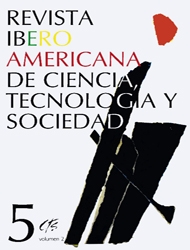The Technical Agency
DOI:
https://doi.org/10.52712/issn.1850-0013-1017Keywords:
agency, normativity, intentional action, control, powerAbstract
This article analyses the technical agency from the two basic dimensions that constitute the normative space of technology. On the one hand, the opening of the space of possibilities for the transformation of the world. This dimension is linked to the valuation of novelty as an essential component of technical progress and to the precautionary principle as the only political principle of technology. On the other hand, the effective capability of realization of the pursued technical actions. This dimension is referred to the degree of control over an aspect of reality introduced by a new technology. Finally, the article reflects on the different senses that have been ascribed to the notion of control and their respective philosophical consequences to think human agency in the sphere of technology.
Downloads
References
ARACIL, J. (1987): Máquinas, sistemas y modelos, Madrid, Tecnos.
BRONCANO, F. (2000): Mundos artificiales. Filosofía del cambio técnico, México, Paidós.
CLARK, A. (2003): Natural-Born Ciborgs. Minds, Technologies and the Future of Human Intelligence, Oxford, Oxford University Press.
FOUCAULT, M. (1970): La arqueología del saber, México, Siglo XXI.
GRAHAM, L. (2001): El fantasma del ingeniero ejecutado. Por qué fracasó la industrialización soviética, Barcelona, Crítica.
MUMFORD, L(1970): The Myth of the Machine. The Pentagon of Power, Nueva York, Harcourt.
NOBLE, D. F. (1984): Forces of Production. A Social History of Industrial Automation, Nueva York, Alfred Knopf.
QUERALTÓ, R. (2003): Ética, tecnología y valores en la sociedad global. El caballo de Troya al revés, Madrid, Tecnos.
QUINTANILLA, M. A. (1986): Tecnología: un enfoque filosófico, Madrid, FUNDESCO.
Downloads
Published
How to Cite
Issue
Section
License
Copyright (c) 2025 CC Attribution 4.0

This work is licensed under a Creative Commons Attribution 4.0 International License.
All CTS's issues and academic articles are under a CC-BY license.
Since 2007, CTS has provided open and free access to all its contents, including the complete archive of its quarterly edition and the different products presented in its electronic platform. This decision is based on the belief that offering free access to published materials helps to build a greater and better exchange of knowledge.
In turn, for the quarterly edition, CTS allows institutional and thematic repositories, as well as personal web pages, to self-archive articles in their post-print or editorial version, immediately after the publication of the final version of each issue and under the condition that a link to the original source will be incorporated into the self-archive.











